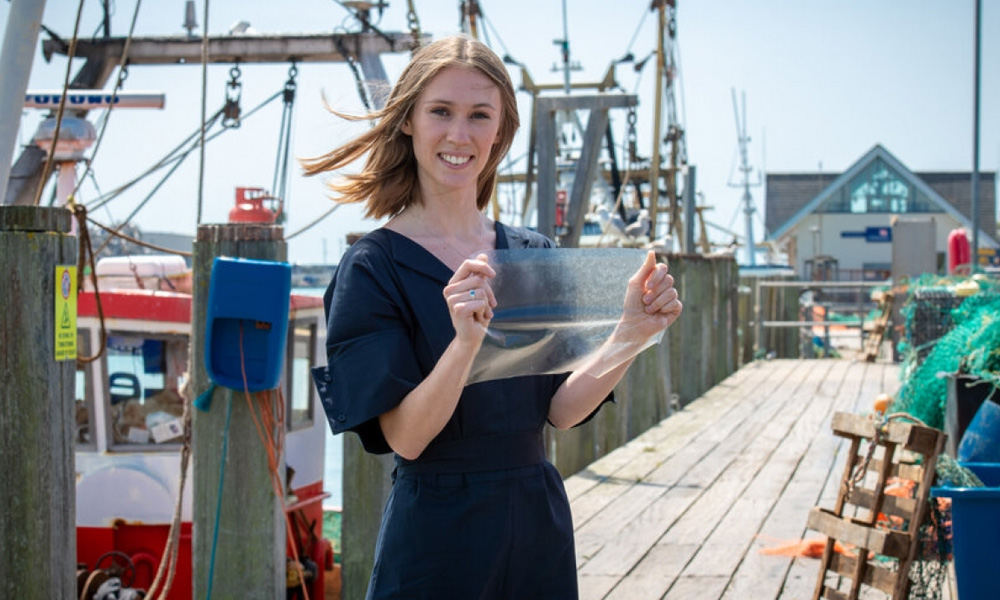
Image Credits: Twitter
UK: Design Graduate Develops Alternative For Single-Use Plastic From Fish Waste, Algae
Writer: Devyani Madaik
A media enthusiast, Devyani believes in learning on the job and there is nothing off limits when it comes to work. Writing is her passion and she is always ready for a debate as well.
India, 15 March 2021 12:27 PM GMT
Editor : Rakshitha R |
Rakshitha an engineer turned passionate journalist with an inclination for poetry, creative writing, movies, fiction, mountains and seclusion. Not a part of the social process but existential.
Creatives : Abhishek M
" An engineer by profession, Abhishek is the creative producer of the team, graphic designing is his passion and travelling his get away. In more ways than one, he makes the content visually appealing."
The new bioplastic looks like conventional plastic, but unlike the latter, it can be consumed by a fish if it escapes into the ocean.
A product design graduate from the University of Sussex, Lucy Hughes, has invented a biodegradable and compostable material from fish waste and sustainable algae as a replacement for single-use plastic films.
The product, named MarinaTex, is the winner of 2019's James Dyson Award. The new bioplastic looks like conventional plastic, but unlike the latter, it can be consumed by a fish if it escapes into the ocean.
It is a translucent material and more potent than low-density polyethene (LDPE), at the same thickness. It is a great alternative to plastic for various products, including carry-bags, bakery bags, sandwich packs etc.
The material does not require particular infrastructure to dispose of and can biodegrade naturally in 4-6 weeks. The material does not require much energy to produce. The temperature required for the production process is below 100 degrees.
Hughes created MarinaTex as a final year project at the university. She was keen to develop something out of waste products.
Through a university tutor, she contacted MCB Seafoods, a fish processing plant and wholesaler in Newhaven, England. After having a plant tour, she identified various waste streams to work with, including offal, blood, crustacean & shellfish exoskeletons and fish skins & scales.
After researching, she worked on fish skins and scales, as both have more flexibility and strength, enabling proteins compared to the other products. According to the official website, the product underwent 100 different experiments.
"Another unique feature about the material is that it is partly comprised of a waste stream. This reduces strain on resources and diverts waste from landfill. It is also part of a sea plant. This crop does not need freshwater or fertilisers to grow and locks in carbon. Furthermore, the material has been shown to have a higher tensile strength than LDPE at the same thickness. This shows that the sustainable option does not sacrifice quality," the official website reads.
Also Read: "Finally, I Feel Free": Bhavani Devi Becomes First Indian Fencer To Qualify For Olympics
 All section
All section














